Video
Excel for Finance and Accounting Full Course Tutorial (3+ Hours)

Excel for Finance and Accounting Full Course Tutorial (3+ Hours)
Get Ad-Free Training by becoming a member today!
https://www.youtube.com/channel/UCqyBfm_H9ugGirk1ufYA2YA/join
Join Learnit Anytime for ad-free training, exams, certificates, and exclusive content:
https://www.learnitanytime.com
Exercise Files: https://tinyurl.com/rxvb4utb
Who it’s for: Professionals using Excel to tackle practical tasks around financial data.
What it is: Microsoft’s spreadsheet application used to clean, organize, and present data.
What you’ll learn: This course begins with a brief Excel refresher before moving on to a series of Finance and Accounting tips to improve your day-to-day workflow. First, we’ll explore common functions like NPV, IRR, and IPMT. Then, you’ll learn how to create a variety of charts to visually represent your data like stock charts, area charts, and even football field charts. Next, you’ll refamiliarize yourself with some key Excel tools like Pivot Tables to maximize your time in the application. Finally, we’ll show you how all of this works in the real world with comprehensive exercises around income statements, balance sheets, cash flow statements, and much more.
Start 0:00
Introduction 0:09
Introduction to Excel 1:38
Data Entry Basics 4:14
Rows and Columns 7:12
Open, Save, and Print 9:34
Formatting Basics 12:37
Formatting in Cells 16:35
Conditional Formatting 20:17
Freeze Panes and Split Screen 23:38
Quick Access Toolbar and Keyboard Shortcuts 27:16
Basic Functions 31:31
IF Statements 37:03
SUMIF and AVERAGEIF 41:06
LEFT, RIGHT, MID, and Flash Fill 46:26
COUNTIF and COUNTIFS 51:31
Conclusion 56:07
Introduction 56:46
Date and Time Functions 57:59
Data Validation 1:01:35
VLOOKUP 1:05:52
INDEX and MATCH 1:10:42
XLOOKUP 1:17:03
Goal Seek and Scenario Manager 1:20:58
PV and FV 1:26:33
NPV 1:31:26
XNOV 1:33:01
IRR 1:35:12
Loan Schedule with PMT 1:38:01
PPMT 1:40:27
IPMT 1:43:21
CUMIPMT 1:46:32
Loan Schedule Templates 1:50:17
Conclusion 1:53:57
Introduction 1:54:58
Bar Charts 1:55:47
Area Charts 1:58:38
Pie and Donut Charts 2:01:38
Combo Charts 2:04:02
Waterfall Charts 2:06:20
Football Field Charts 2:08:43
Sparklines 2:18:00
Pivot Tables 2:21:17
Pivot Charts 2:27:40
Sorting and Filtering 2:31:26
Regression Analysis 2:36:30
Analyze Data 2:44:03
Stock Charts 2:46:54
Purchase Price Variance 2:49:31
Conclusion 2:51:39
Introduction 2:52:25
Building Data Rates 2:53:06
Calculating HPR Rates of Return 2:56:10
Statement Model 3:02:26
Income Statements 3:04:16
Operating Costs 3:12:53
Operating Expenses and Interest 3:16:44
Taxes 3:18:34
Net Income 3:20:34
Capital Expenditure and Depreciation Schedule 3:23:14
Setting Up Balance Sheets 3:28:58
Balance Sheet Forecasts 3:32:20
Cash Flow Statements 3:46:02
Statement Model Check 3:56:08
Conclusion 3:58:09
#excel #exceltutorial #exceltips #exceltricks
Learnit is no longer associated with this channel/video.
(C) 2025 Bomberry Productions
Any illegal reproduction of this content will result in immediate legal action.
source
Video
Financial Instruments Revision | All Concepts + Imp Ques | CA Final FR Revision | CA Aakash Kandoi

#frrevision #financialinstruments #indas109revision
Telegram Channel for all CA Final Notes, Videos & Updates: https://t.me/aakashkandoi_FR
To Enroll for FR Lectures, visit: https://bbvirtuals.com/product-category/video-lectures/ca-final/fr/
Subscribe to my Youtube channel
Connect with me here:
Instagram – https://www.instagram.com/ca_aakashk/?hl=en
Linked In – https://in.linkedin.com/in/aakash-kandoi-161168a2
#cafinal #cafinalfr #aakashkandoifr #frrevision #cafinalfrrevision #indas115 #financialinstruments #businesscombination #cfs #frrevisionlectures
source
Video
2026 NEW UPI MONEY EARNING APP New Paytm Earning App New Earning App Today || Income Tricks

☄️ Hello, Friends, I am Aatma Music, Owner of the YouTube channel. Today, I Will Explain about 2026 NEW UPI MONEY EARNING APP New Paytm Earning App New Earning App Today || Income Tricks,
Offer 1 ~ https://tinyurl.com/2rx7upsy
https://tinyurl.com/2rx7upsy
👨💻 SO DON’T FORGET TO LIKE, COMMENT & SUBSCRIBE.
⚠️ Disclaimer- This channel does not promote any illegal content, all content provided by this channel is meant for Education purposes only. The content provided in this video is for educational purposes only. The information is intended to enhance knowledge and understanding in the subject matter and should not be construed as professional advice. The views expressed are those of the author or creator and do not necessarily reflect the views of any organization or institution with which they are affiliated. No part of this material should be reproduced for commercial purposes without permission. While efforts are made to ensure the accuracy and reliability of the information, the author or creator make no guarantees regarding the completeness or correctness of the content. Users are encouraged to verify any information before applying it in real-world scenarios.
Your Queries:-
Paytm Hair Oil offer
➡How To Make Money
➡Make Money App
➡Earn Money Online
➡Make Money Online
New Refer & Earn App
Money Earning App
Earning App, Online Earning App,
paise kamane wala app
online paise kaise kamaye
Earn rewards app
new earning apps
earning app paytm cash
new gaming earning app
source
Video
Cara Ngatur Duit Tanpa Ribet
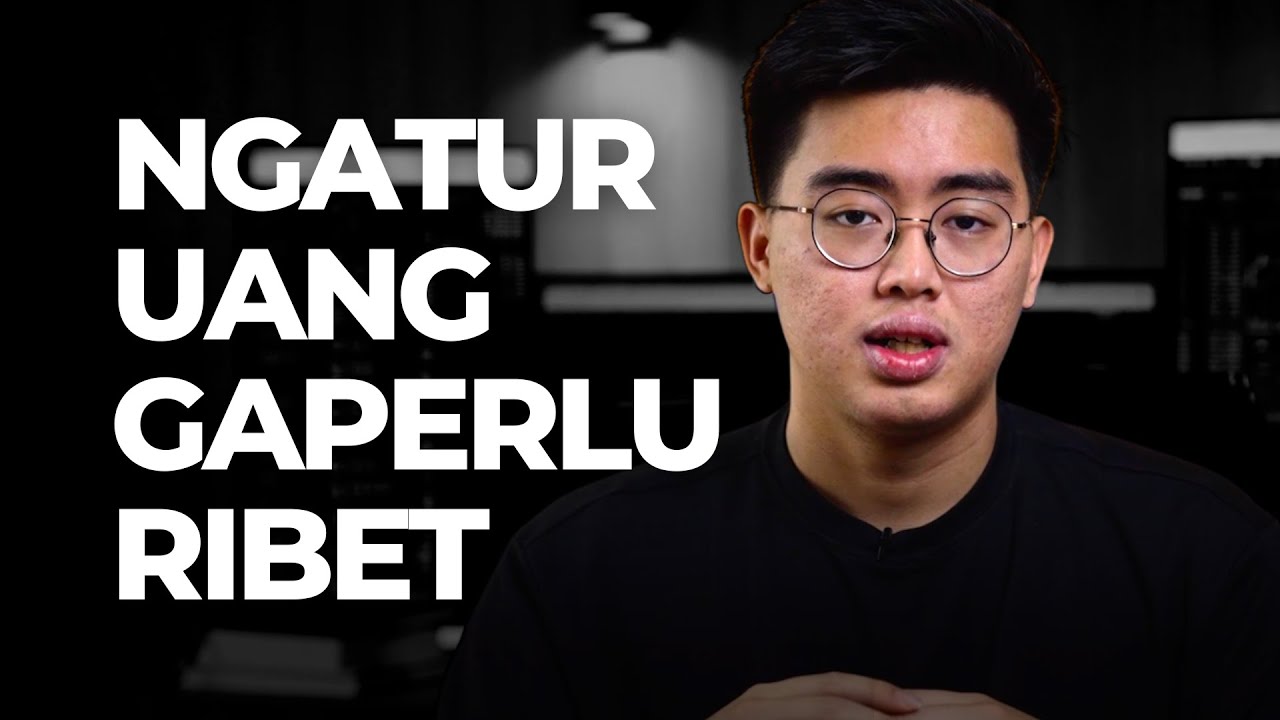
Gabung Komunitas Akademi Crypto: https://discord.gg/akademicrypto
Instagram Gua: https://www.instagram.com/timothyronaldd
Buku Akademi Crypto:
Tokopedia https://www.tokopedia.com/akademicrypto
Shopee https://shopee.co.id/akademicrypto
Baju yang Gua Pake:
Tokopedia https://tk.tokopedia.com/ZSPusrHwb
Shopee https://s.shopee.co.id/1gAJowD7DC
Exchange Crypto Kita: https://floq.co.id
source
Video
The Psychology of Money in 20 minutes
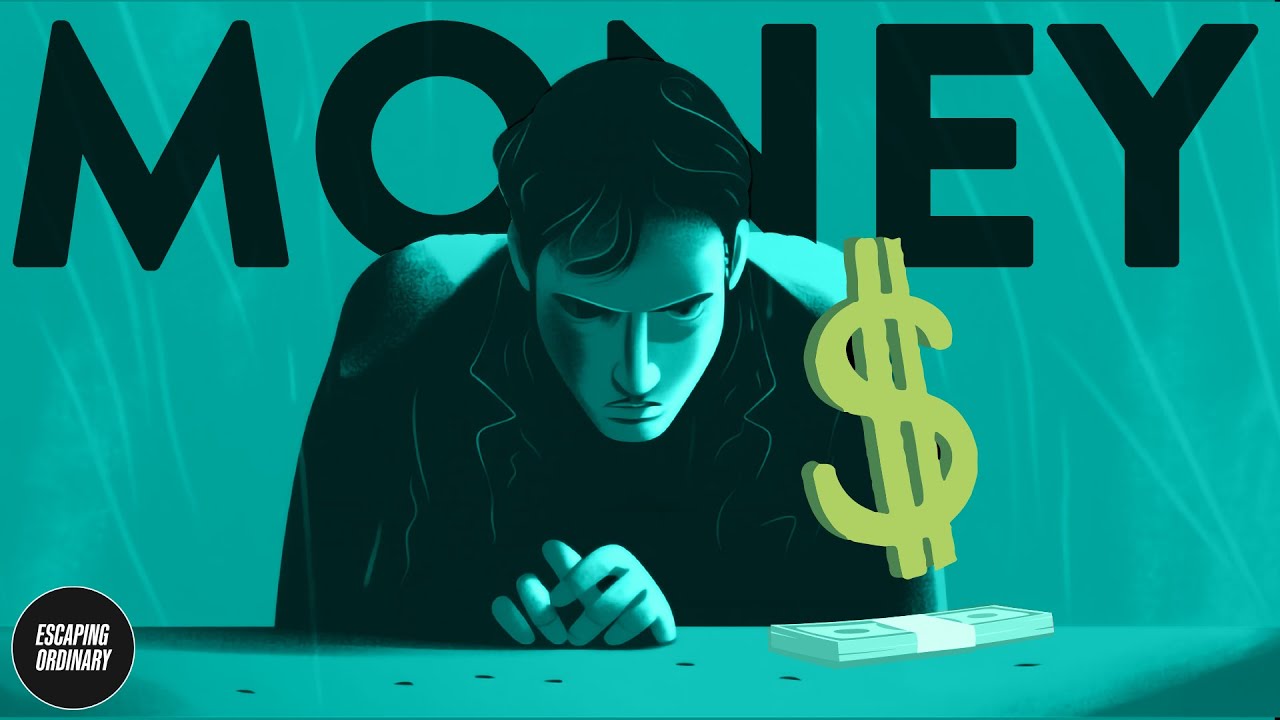
This video was inspired by Morgan Housel’s amazing book “The Psychology of Money”
I hope this short video inspires you to put down your phone (and social media) for a few hours and go out and grab a copy of this book for yourself.
Check out Morgan Housel’s book here
📕The Psychology of Money https://amzn.to/3ZdJQq1
If you are more into Audiobooks, here is a link to that. You can get two of these books for free if you sign up for a free Audible trial with the link below.
🎧Grab The Psychology of Money audiobook here on an Audible trial with 2 free books
https://amzn.to/3A5r32l
What is The Psychology of Money about?
You may think of money as just numbers, spreadsheets, math or an equation that needs to be solved, but the real financial decisions are made away far from calculators, around dinner tables – with ego, pride, fear and personal history.
The true nature of money is the dance between the cold arithmetic of a spreadsheet and human nature.
When it comes to money we are complicated creatures and financial success is not so much about how much you know but how you behave.
★★★ Would you like to Support us? ★★★
Get products designed with love here 🙂
https://shop.escapingordinary.net/collections/all
Mind Trap decks
Cognitive Mind Traps Deck
(TIMESTAMPS)
(00:00) Financial DNA (You aren’t Crazy)
(02:51) Compound Kings (Buffett’s dirty little secret)
(05:56) Pessimism & Money
(07:40) Two Forgotten Elements (A story)
(10:18) The Key to Happiness
(11:21) Tail Events
(15:02) Beyond Bling (True Wealth VS Being Rich)
(16:30) The Real Price
(19:13) Hedonic Treadmills (enough?)
🍿Here are some other videos from the channel you may be interested in watching…
📽️21 Mind Traps – Master your most common thinking errors –
📽️Atomic Habits (Detailed Summary)
📽️Rich Dad Poor Dad | (Detailed Summary)
📽️The Laws of Human Nature (Detailed Summary)
📽️The Four Agreements (Detailed Summary)
📽️Limitless by Jim Kwik (Detailed Summary)
Thankyou for watching. Please Subscribe, it helps a lot! 🙂
source
Video
Kevin Warsh Announced As New FED Chair! This Is What He Said On Crypto!! Binance Letter To Community
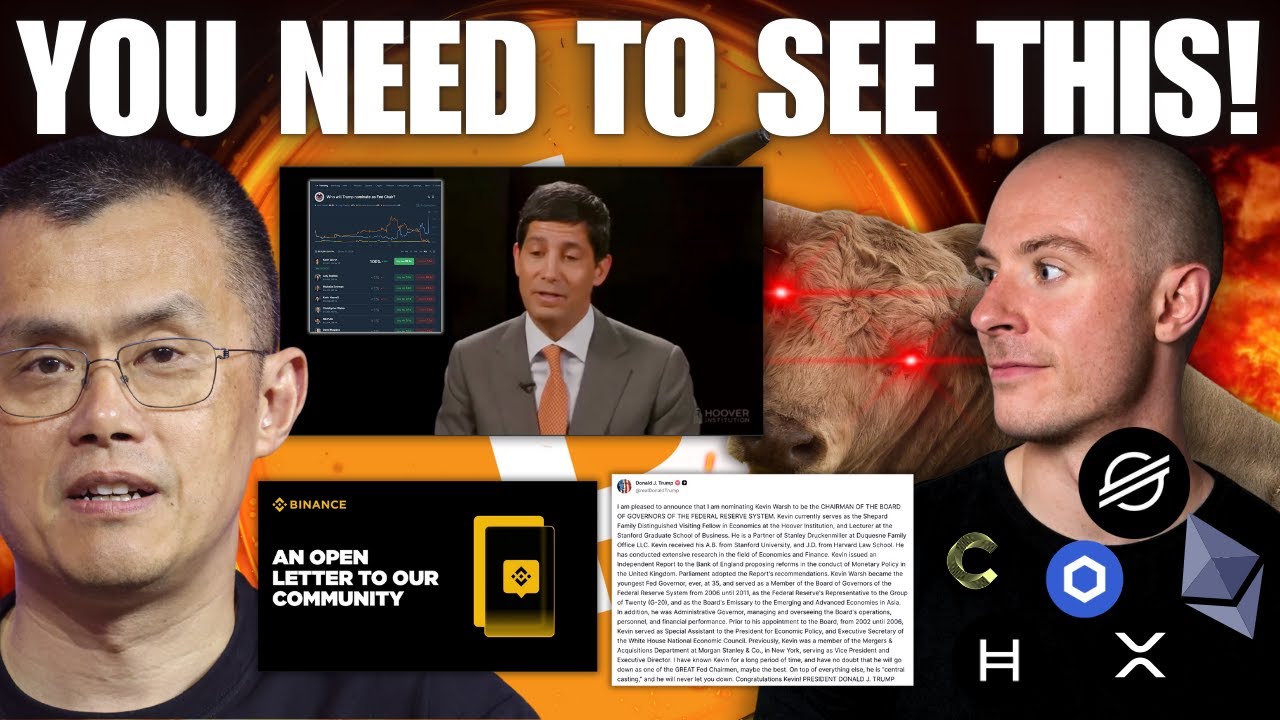
Welcome back for another daily market update as always this will be a jam packed one!
💎Join the Patreon and get exclusive access to our private Discord community which includes:
💎2 Weekly Meetings With Me
💎My Portfolio
💎Altcoin Watch List
💎Early Access To Interviews And Videos
💎Courses
👇Patreon Link 👇
https://www.patreon.com/AllinCrypto
👇Podcasts – Allincrypto Podcast
My Twitter – https://twitter.com/RealAllinCrypto
PLEASE LIKE COMMENT AND SUBSCRIBE FOR MORE CONTENT
THANKS FOR WATCHING
DISCLAIMER: I am not a financial adviser and this video is not financial advise this video is here for entertainment and educational use only
#bitcoin #btc #crypto #altcoins #ai #bullrun #solana #cardano #ada #Hbar #hedera #ethereum #eth #ripple #xrp #icp
source
Video
Get Your Wealth Out of the System Before it’s Too Late
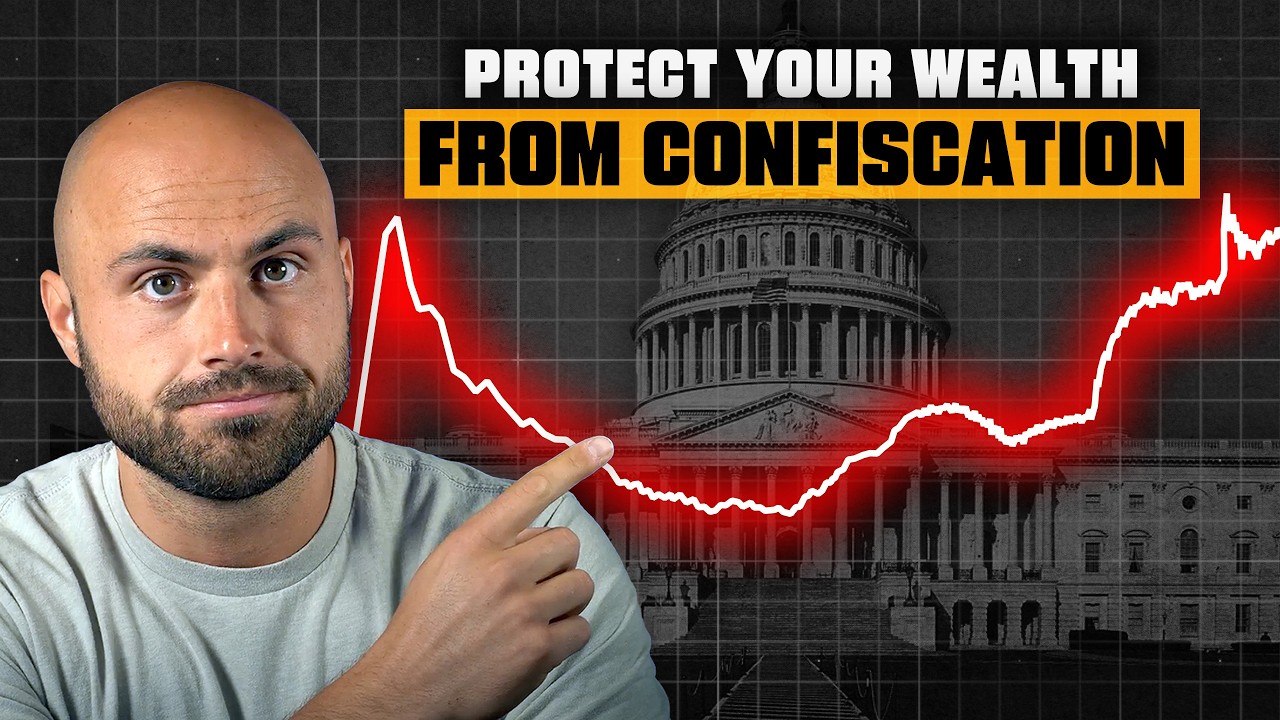
Get my free newsletter Letters From a Heretic: https://go.heresy.financial/letters-from-a-heretic
TIMECODES
00:00 Why Some Wealth Needs to Be Outside the System
00:12 The 1940s Debt Playbook and Why It Matters Again
01:45 Why This Time Is Worse Than World War II
02:36 How Governments Inflate Debt Away
03:12 What Financial Repression Actually Means
04:09 Why Escaping Inflation Makes the System Fragile
05:06 Capital Controls and Why Wealth Gets Trapped
06:16 Five Ways to Get Wealth Outside the System
06:35 Physical Gold Done the Right Way
09:26 Bitcoin as Permissionless Wealth
09:59 Real Estate as a Hedge Against Inflation
11:38 Why Skills and Businesses Can’t Be Confiscated
12:35 Second Citizenship and Mobility as Insurance
13:34 Why Waiting Too Long Is the Biggest Risk
My Important Links:
Get my FREE newsletter Letters From a Heretic: https://go.heresy.financial/letters-from-a-heretic
Get my Hedged Hyper Growth Portfolio Blueprint for its lowest price ever: https://go.heresy.financial/hypergrowth
Affiliate Partners:
Monetary Metals (earn yield on gold) https://monetary-metals.com/heresy-financial/
Miles Franklin (buy gold, best price) https://milesfranklin.com/heresy-financial/
Swan Bitcoin (stack bitcoin) http://bit.ly/swnhrsy
M1 Finance (invest in stocks) https://m1.finance/MNoCZwlvGStC
Socials @HeresyFinancial
Twitter: https://www.twitter.com/heresyfinancial
Insta: https://www.instagram.com/heresyfinancial
TikTok: https://www.tiktok.com/@heresyfinancial
Reddit: https://www.reddit.com/user/heresyfinancial/
Rumble: https://rumble.com/c/HeresyFinancial
My name is Joe Brown, and I’m a former stock broker who spent years advising the top 1% on how to manage their wealth. After making enough money to leave the corporate world behind, I turned my attention to teaching regular people financial strategies that exist outside the mainstream – things you’ll never hear from your traditional fiancial advisor.
I am not a CPA, attorney, or licensed financial advisor and the information in these videos shall not be construed as tax, legal, or financial advice. Information shared here is for educational purposes only. It is not financial advice or a recommendation to buy or sell any security. Investors are responsible for evaluating their own financial objectives and identifying potential risks before making any investment decisions. Your results are not guaranteed, and all investing involves substantial risk of loss. Your results may vary. Linked items may create a financial benefit for Heresy Financial. Copyright Heresy Financial 2025.
source
Video
Blaiz Fayah X Maureen – Money Pull Up (Official Audio)

Blaiz Fayah X @Maureenl.l “Money Pull Up” available 👉 https://xray.lnk.to/BlaizFayahMaureenMoneyPullUp
Single taken from “Shatta Ting” album : https://xray.lnk.to/BlaizFayahShattaTing
🔔 Subscribe to my channel 👉 https://bit.ly/BlaizFayahYoutube
🎤 Blaiz Fayah on tour 👉 https://bnds.us/gowc05
LYRICS :
Nobody can diss the real hustler
Depi longtime yo pa sav , di yo pa reté la
We make di pum pum turn up mi nah tell no lie
Call me di bad queen coming from madinina
Anywhere we go we kill, yeh top shatta dem fi know,
Mad ting hot like a gunshot you know,
Kombien fess , kombien gyal konten back it up
Gi me di pumpum session dj a mash it up
Money pull up
Action we ah turn it up
Shatta run di place and guess who ah bring it up ?
Pull up,
Hot hot hot yeh we hot hot
Badgyal deh ya dem a whine it to di top
Money pull up
Pull up, money pull up
Shatta run di place and guess
Who ah bring it up
Money pull up
Pull up, money pull up
Badgyal deh ya dem a whine it to di top
Money pull up
Badgyal with my position
Wine to di top, si ou pa lé ay kokel
Money pull up
Wine me a wine pa bizwen trop
Bad queen action di yo nou toujou up
So mi say, whine fi me baby
Any time mi ready
Bend your back, neva get enough I’m greedy
Nah we nah care
Up inna the air
Tchek I got new watch on mi wrist
Money pull up
Action we ah turn it up
Shatta run di place and guess who ah bring it up
Pull up,
Hot hot hot yeh we hot hot
Badgyal deh ya dem a whine it to di top
Money pull up
Pull up, money pull up,
Shatta run di place and guess
Who ah bring it up
Money pull up
Pull up, money pull up
Badgyal deh ya dem a whine it to di top
Nobody can diss the real hustler
Depi longtime yo pa sav , di yo pa reté la
We make di pum pum turn up mi nah tell no lie
Call me di bad queen coming from madinina
Anywhere we go we kill, yeh top shatta dem fi know
Mad ting hot like a gunshot you know
Kombien fess , kombien gyal konten back it up
Gi me di pumpum session dj a mash it up
Money pull up
Action we ah turn it up
Shatta run di place and guess who ah bring it up
Pull up,
Hot hot hot yeh we hot hot
Badgyal deh ya dem a whine it to di top,
Money pull up
Pull up, money pull up
Shatta run di place and guess who ah bring it up
Money pull up
Pull up, money pull up
Badgyal deh ya dem a whine it to di top
Money pull up
🎥 Credits 🎥
Artist : Blaiz Fayah, Maureen
Riddim : Dj Glad
Mix & Mastering : Mad Ting Records
🇬🇧 With Money Pull Up, Blaiz Fayah delivers the hit of the moment! The two ambassadors of Dancehall Shatta, Blaiz Fayah and Maureen, are taking over the charts worldwide! Over a riddim by Martinican DJ Glad, the two artists lay down their flow in a mix of English and Creole. The track is going global thanks to a viral dance challenge taken up by the biggest influencers of the moment (Charli D’Amelio, Katseye, Samia Kanaan, Léa Elui, Sebastien…).
🇫🇷 Avec « Money Pull Up » Blaiz Fayah nous offre le hit du moment ! Les deux ambassadeurs du Dancehall Shatta, Blaiz Fayah et Maureen, sont en train d’exploser tous les charts à travers le monde ! Sur le riddim du martiniquais DJ Glad, les deux artistes posent leur flow dans un mélange anglais/créole. Le morceau envahit le monde grâce à un dance challenge viral repris par tous les plus grands influenceurs du moment (Charli D’Amelio, Katseye, Samia Kanaan, Léa Elui, Sebastien…)
Follow Blaiz Fayah on :
Instagram : https://www.instagram.com/blaizfayah/
TikTok : https://www.tiktok.com/@blaizfayah
Follow Maureen on :
Instagram : https://www.instagram.com/maureen.l.l/
TikTok : https://www.tiktok.com/@maureen.l.l
Youtube : @Maureenl.l
#BlaizFayah #Maureen #MoneyPullUp
source
Video
Crypto Trading LIVE: BTC Live Trading Bitcoin Analysis | 30 JAN #crypto #bitcoin #btc

TELEGRAM : https://t.me/TradeForProfitx
✅ NON KYC FOREX BROKER- Markets4You-https://account.markets4you.online/en/user-registration/?affid=pwfrktk%3ATFP
✅BEST REWARDS BROKER-BINGX-
https://bingx.pro/en/activity/task/2247148490?ref=TFP
(PARTNER CODE- TFP )
✅BEST CFD BROKER(FOREX+CRYPTO) -PRIMEXBT- https://go.primexbt.direct/visit/?bta=45475&brand=primexbt
(20% DEPOSIT BONUS CODE-TFP20)
✅ NON KYC CRYPTO EXCHANG- KCEX- https://www.kcex.com/landingpage/TradeForProfit2?handleDefaultLocale=keep&inviteCode=14R1VP
(PARTNER CODE- 14R1VP)
✅BEST FOREX BROKER (XM)- https://affs.click/KvJnF
(PARTNER CODE- TFP100)
🚨Disclaimer – – – –
The information provided during this stream is for educational and informational purposes only. it does not constitute financial advice, investment recommendation involves high risk, and you should not trade with money you cannot afford to loss. Always conduct your own research, consult with a financial advisor, and make decisions bases on your personal circumstances. the content shared in this stream reflects my personal opinions and may not be suitable for everyone.
🚨”Disclaimer: Forex and CFD trading involve significant risk and may not be suitable for all investors. Exness is an offshore broker and is not regulated by SEBI (Securities and Exchange Board of India). Indian laws allow forex trading only on SEBI-approved exchanges and INR-based currency pairs. Trading with an offshore broker may lead to legal and financial risks, including potential issues with fund withdrawals or regulatory actions by RBI or SEBI. Please do your own research and consult a financial advisor before investing.”
————————————————————————————————————————————————————–
#bitcoin
#live
source
Video
Financial Planning | Watch Full Video On Our YouTube Channel #shorts
Video
PARKOUR VS MONEY HEIST 25!

#PARKOUR #BELLACIAO #LACASADEPAPEL #ESCAPE #POLICE #MONEY #HEIST #MONEYHEIST
Parkour is a training discipline using movement that developed from military obstacle course training.
NOTE:
We made this video for entertainment purposes this video is not real this video is a short film/movie/sketch, the Parkour/Freerunning in this video was performed in a safe environment by professional athletes, we’ve been doing this type of sport for more than 9 years, thank you for understanding👍
______________________________________________________________
Practitioners aim to get from one point to another in a complex environment, without assistive equipment, and in the fastest and most efficient way possible. Parkour includes running, climbing, swinging, vaulting, jumping, rolling, quadrupedal movement (crawling), and other movements as deemed most suitable for the situation.
Parkour’s development from military training gives it some aspects of non-combative martial art.
______________________________________________________________
Subscribe: https://www.youtube.com/channel/UCCOIESyMbbWwsR_MBuczDwA?view_as=subscriber
Instagram: https://www.instagram.com/thunderfreerunning
Facebook: https://web.facebook.com/ThunderFreerunning
Twitter: https://twitter.com/ThunderFreerun
______________________________________________________________
OG members:
“Cobra” Hazim Fatani: https://www.instagram.com/hazimfatani/
Bassam Fatani: https://www.instagram.com/parkour_fatani
Will Fatani: https://www.instagram.com/willpkfatani/
______________________________________________________________
New members:
Ray rn: https://www.instagram.com/ray_kung786/
Fit – Fix Nine Roxy: https://www.instagram.com/fixx.nineroxy/
Sidik: https://www.instagram.com/assiidiik/
Fikri: https://www.instagram.com/_.bng._10/
Fi Daree: https://www.instagram.com/fidaree_45/
Abdulhafit Fit: https://www.instagram.com/arwaedamae/
Abdulhakim Kim: https://www.instagram.com/kimmybts/
Hung : https://www.instagram.com/hu_ng2705/
PU PER: https://www.instagram.com/pu_per1/
Nurdeen: https://www.instagram.com/nurdeen._/
______________________________________________________________
Special thanks:
Buk: https://www.instagram.com/buk_.17/
Arfan Damae: https://www.instagram.com/arfan_damae6/
Mukhlis Arwae: https://www.facebook.com/profile.php?id=100046990671133&mibextid=LQQJ4d
______________________________________________________________
Tense Cinematic NoCopyright Background Music / BlackMail by soundridemusic
Credits:
Music: BlackMail by Soundridemusic
Link to Video: https://www.youtube.com/watch?v=7od843ArgnE
• Cinematic Trailer Teaser NoCopyright Background Music / Adrenaline by Soundridemusic
Artist: Soundridemusic
Credits:
Music: Adrenaline by Soundridemusic
Link to Video: https://www.youtube.com/watch?v=K1twNzIqBfY
• Cinematic Trailer Teaser NoCopyright Background Music / Adrenaline by Soundridemusic
Artist: Soundridemusic
Credits:
Music: Final Chase by Soundridemusic
Link to Video: https://www.youtube.com/watch?v=qnsRgxfZUSQ
• Epic Chase Tension No Copyright Background Music by Soundridemusic
Artist: Soundridemusic
Credits:
Music: Dark Investigation by Soundridemusic
Link to Video: https://www.youtube.com/watch?v=M-vazrsRALg
• NoCopyright Dark Tension Thriller Music for Video / Dark Investigation by soundridemusic
Credits:
Music: Dark City by Soundridemusic
Link to Video: https://www.youtube.com/watch?v=ILyfR-GLm-A&t=105s
• Cinematic Suspense Trailer NoCopyright Music for Video / Dark City by Soundridemusic
► Support the Soundridemusic and enjoy exclusive perks by becoming a member:
/ @soundridemusic
► SUPPORT me on Patreon: https://www.patreon.com/soundridemusic
/ soundridemusic :
• to use music without credits;
• to get early access to music that is not on YouTube;
• to get high-quality wave file downloads;
• to download all my content with one link.
FOLLOW Soundridemusic
Instagram: https://www.instagram.com/soundridemusic/
/ soundridemusic
TikTok: https://www.tiktok.com/@soundridemusic
LISTEN to Soundridemusic on STREAMING
• Spotify: https://open.spotify.com/artist/1MxHcId848nwUHNLK03SOd
• Apple: https://music.apple.com/us/artist/soundridemusic/1623593908
• Amazon: https://www.amazon.com/music/player/artists/B0B1332NRT/soundridemusic
• SoundCloud: https://soundcloud.com/soundridemusic
• Deezer: https://www.deezer.com/en/artist/16940875
source
-

 Video4 days ago
Video4 days agoWhen Money Enters #motivation #mindset #selfimprovement
-

 Tech2 days ago
Tech2 days agoWikipedia volunteers spent years cataloging AI tells. Now there’s a plugin to avoid them.
-

 Fashion7 days ago
Fashion7 days agoWeekend Open Thread – Corporette.com
-

 Politics4 days ago
Politics4 days agoSky News Presenter Criticises Lord Mandelson As Greedy And Duplicitous
-

 Crypto World6 days ago
Crypto World6 days agoU.S. government enters partial shutdown, here’s how it impacts bitcoin and ether
-

 Sports6 days ago
Sports6 days agoSinner battles Australian Open heat to enter last 16, injured Osaka pulls out
-

 Crypto World6 days ago
Crypto World6 days agoBitcoin Drops Below $80K, But New Buyers are Entering the Market
-

 Crypto World4 days ago
Crypto World4 days agoMarket Analysis: GBP/USD Retreats From Highs As EUR/GBP Enters Holding Pattern
-
Sports7 hours ago
New and Huge Defender Enter Vikings’ Mock Draft Orbit
-

 NewsBeat3 hours ago
NewsBeat3 hours agoSavannah Guthrie’s mother’s blood was found on porch of home, police confirm as search enters sixth day: Live
-

 Business24 hours ago
Business24 hours agoQuiz enters administration for third time
-

 Crypto World7 days ago
Crypto World7 days agoKuCoin CEO on MiCA, Europe entering new era of compliance
-
Business7 days ago
Entergy declares quarterly dividend of $0.64 per share
-

 NewsBeat3 days ago
NewsBeat3 days agoUS-brokered Russia-Ukraine talks are resuming this week
-

 Sports4 days ago
Sports4 days agoShannon Birchard enters Canadian curling history with sixth Scotties title
-

 NewsBeat1 day ago
NewsBeat1 day agoStill time to enter Bolton News’ Best Hairdresser 2026 competition
-

 NewsBeat4 days ago
NewsBeat4 days agoGAME to close all standalone stores in the UK after it enters administration
-

 Crypto World3 days ago
Crypto World3 days agoRussia’s Largest Bitcoin Miner BitRiver Enters Bankruptcy Proceedings: Report
-

 Crypto World24 hours ago
Crypto World24 hours agoHere’s Why Bitcoin Analysts Say BTC Market Has Entered “Full Capitulation”
-
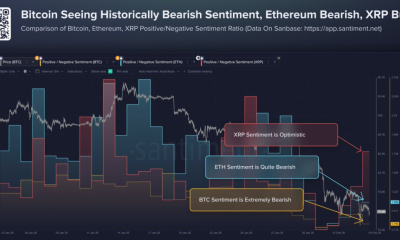
 Crypto World23 hours ago
Crypto World23 hours agoWhy Bitcoin Analysts Say BTC Has Entered Full Capitulation







